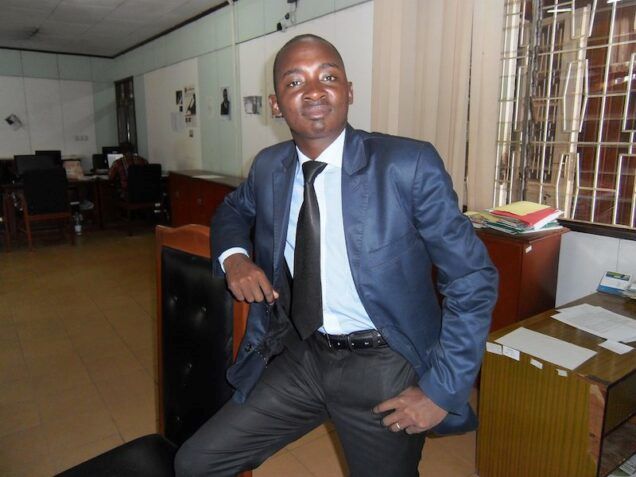Gabon expels Cameroonian journalist ahead of election
The Committee to Protect Journalists said Gabonese police expelled Sainclair Mezing, a reporter with Cameroon Tribune newspaper, hours after his arrival in the capital, Libreville.
According to the media rights group based in the United States, Mezing was expelled on 19 August, with just 7 days to the election on 26 August.
The journalist who spoke with CPJ said officers questioned him at the airport about the purpose of his visit, claiming that he did not have the correct media accreditation and put him on a flight back to Cameroon.
The journalist said that he was in possession of an assignment letter from his newspaper and had been told by the Gabonese Embassy in Cameroon that he could obtain his election accreditation once in the country. Mezing said Gabonese authorities did not give him a reason for his expulsion.
The CPJ in a statement Friday condemned the expulsion of the Cameroonian reporter and urged authorities to allow journalists to freely report on the country’s elections scheduled for Saturday, August 26.
“Gabonese authorities must allow all journalists who wish to cover this weekend’s elections to do so without obstruction or censorship,” said Angela Quintal, CPJ’s Africa program coordinator in Durban, South Africa.
“Local and foreign journalists should be able to follow the events on the ground and keep the public informed about the democratic process. Press freedom is central to any free and credible election, and expelling foreign journalists like Sainclair Mezing is unacceptable.”
The privately owned Paris-based news magazine Jeune Afrique also reported on August 23 that it had been unable to obtain accreditation for the presidential, legislative, and local elections.
The outlet said it was not aware of any international media outlet that had received permission to report on the vote, in which President Ali Bongo is expected to extend his family’s 55-year rule.
On Thursday, CPJ joined the #KeepItOn coalition—a global network of over 300 organizations from 105 countries—in urging Bongo and his administration to guarantee open and secure internet access during the election.
CPJ called and emailed Gabon’s Communication Ministry for comment but did not receive any replies.
Source: pmnewsnigeria




